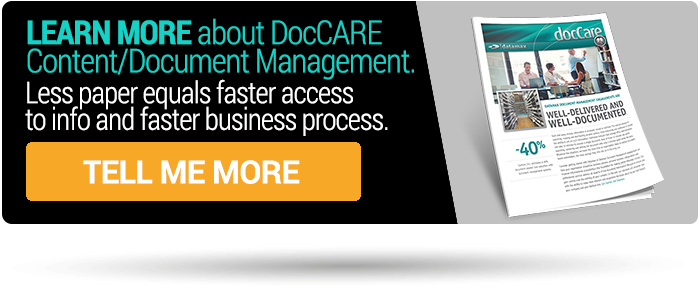
Your staff works hard every day to keep patients happy and healthy. Get them a EHR system capable of making the most out of their time and efforts every day, and streamline your medical record keeping at the same time.
You have countless options for electronic health record (EHR) systems, and every vendor wants to claim that they have the best solution for your needs. This technology moves you away from endless paper files and keeps patients' health information in digital form. Authorized medical professionals have an easier time accessing this information quickly rather than waiting for your office to mail or fax documents. When you evaluate EHR systems, keep an eye out for these seven features.
1. Capable of Handling a Variety of Health Information
Your medical record hard copies include a broad range of details, from patients' current medication to their family history. When you digitize this data, you need retrieval methods capable of pulling up clinical notes, authorizations, test results, advanced directive forms, and other documents.
2. Document Scanning
You have a lot of paper documents that need to be scanned into the new EHR system. Look for scanning features that streamline this process and prevent digital edits from being made to the files. With digital documents, your office will also regain much-needed space that's currently being taken up by paperwork.
3. Interoperability
An EHR system works best when it integrates with other applications used in your office. When you have prescription, billing, and scheduling systems connected with your EHR, you gain a clearer view of your patients and business operations. The EHR should also support multiple platforms and devices, so staff members aren't tied down to a limited number of workstations or old operating systems.
4. User-Friendly Interface
You want your employees to spend their time focusing on patient needs, not struggling with software. Look for an EHR system that's easy to use and quick to learn. When you evaluate solutions, get input from staff members who use this application the most. They will let you know whether they enjoy using the new software, any issues they encounter and what will help them do their jobs better.
5. Cloud-Based EHR
A cloud-based system enables access from multiple offices, which cuts down on the amount of time spent traveling between locations. You also store backups in an off-site location. Patient data remains safe even if your building gets caught up in a natural disaster or fire. The EHR vendor handles system upgrades and feature updates with cloud systems, which limits your onsite IT requirements.
6. Onboarding Resources
You face a training period before your staff gets the time-saving benefits of any new system. Look into the educational resources offered by the vendor before you make a decision. One of the best options is onsite training from certified technicians. Video training, Web conferencing, and extensive knowledge bases are a few methods frequently offered.
7. Responsive Support
Even the best systems run into hiccups from time to time. You need an EHR vendor capable of helping you after they implement the system. Your office can't help patients properly if this critical system goes down, so make sure the company is there for you when you need them the most. 24/7 support with multiple channels, such as phone, email, and chat, gives you the most peace of mind.
Your staff works hard every day to keep patients happy and healthy. Get them a EHR system capable of making the most out of their time and efforts every day, and streamline your medical record keeping at the same time.


